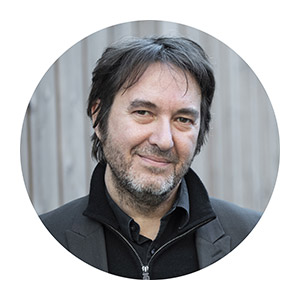Thomas Bourgeron
Institut Pasteur, Paris, France
 Titre
Titre
Phenotypic effects of genetic variants associated with autism beyond diagnosis
Abstract
The heritability of autism
is high (>80%), but the genetic architecture is complex made of a
combination of common and rare variants. Some conditions such as autism,
attention deficit hyperactivity disorders (ADHD), intellectual disability (ID),
epilepsy share genetic variants, and the factors contributing to the diversity
of the clinical trajectory remain largely unknown. Our previous studies pointed
at one biological pathway associated with autism related to synapses. In this
presentation, I will discuss our recent results coming from human studies in
large populations and genetic isolates as well as mouse studies that shed new
light on the inheritance of autism and some of the underlying mechanisms.
Finally, I will illustrate how we are currently studying Resilience to understand why some carriers of mutations seem to be
protected from adverse symptoms while others are severely affected.
Biosketch
Having begun his research career investigating mitochondria in plants and then neurological diseases, Thomas Bourgeron discovered the first mutations of the NLGN3, NLGN4X and SHANK3 genes in autism highlighting the main role of the synapse in this complex condition. Currently, his laboratory gathers psychiatrists, neuroscientists and geneticists to understand the interplay between common and rare variants in autism. He is leading the genetic work package for the PARIS project and of AIMS2-TRIALS, the largest European project dedicated to translational research on autism. Both projects are focused on deep-phenotyping of individuals with autism and controls including brain imaging (EEG and MRI) and a battery of cognitive tests. His group is currently developing new methods for analysing whole genome and brain imaging data as well as new paradigms for characterizing mouse social and vocal behaviours. He is also the PI of INCEPTION, a large project at Institut Pasteur that applies integrative biology to understand the emergence of diseases in populations and individuals. He is a member of the European Molecular Biology Organisation (EMBO), the French Academy of Sciences and the Academia Europaea. His aim is to provide knowledge-based discoveries for a better diagnostic, care and integration of individuals with autism and neurodevelopmental disorders.
Website: https://research.pasteur.fr/en/team/human-genetics-and-cognitive-functions/